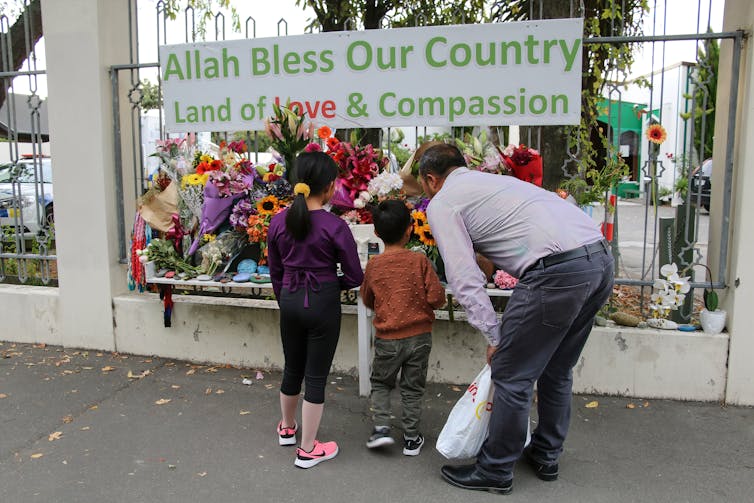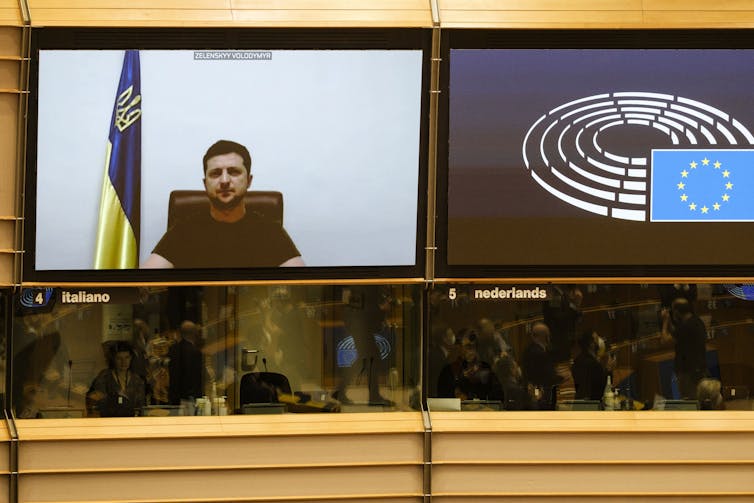On the 3rd anniversary of the Christchurch attack, the Ukraine crisis asks the West to rethink its definitions of terrorism
Teaching Fellow, Massey University
As the Russian invasion unfolds, a deep vein of Ukrainian nationalism – already irritated by the annexation of Crimea and a Russian-backed insurgency in the Donbas region – has been unleashed.
Ordinary civilians have called themselves to arms, vowed to kill Russians in vengeance for their aggression, and promised to fight to the death.
Improvised explosive devices – as desperately simple as Molotov cocktails – have been produced. A foreign legion has been raised, and foreign fighters invited to join the cause.
Not so long ago, actions like this met with international scorn. United Nations resolutions and legislation in many countries were passed against those improvising explosives and travelling into war zones to fight – because those doing it were supporting ISIS.
For nearly two decades, the notion of “radicalisation” has prevailed as a careless label – describing an apparently irrational and inexplicable determination to incite, perpetrate and endure physical violence.
Yet here it is materialising on our television screens. Not only is the Ukrainian determination to fight to the end understandable, the desire of outsiders to help them makes sense.
The lesson of ISIS
The Ukrainian situation demonstrates the normality of rational human beings advocating and perpetuating violence in circumstances they perceive as unacceptable.
No judgement is made here on the relative merits of ISIS and the terrible circumstances in Ukraine. We obviously see the two causes as a world apart – though ISIS would see them as absolutely aligned.
Read more: How will NZ's law targeting sanctions against Russia work – and what are the risks?
Regardless, it is not necessarily a character flaw that causes people to advocate and perpetuate dreadful violence, to kill and maim, and go to their own deaths to achieve an outcome they will not survive to see.
The Ukrainian defence is inspiring, courageous and, however it ends, it will be an exhibition of the human will against impossible odds.
But ISIS saw themselves the same way.

Terrorism and social cohesion
New Zealand’s royal commission of inquiry into the Christchurch attacks of March 15 2019 trapped itself – and has since trapped policymakers – into thinking terrorism’s sole cause is irrational extremism.
This position presumes terrorism largely emerges from ideological or religious extremism, and that it is a social problem – so pursing policies to encourage “social cohesion” will help avoid future terrorism.
As similar and cohesive as the peoples of Russia and Ukraine were, it has taken no time at all to turn them into bitter enemies as the result of Putin’s decision to invade. Peaceful, law-abiding Russian people living cohesively in New Zealand have suddenly found themselves the targets of abuse and threats.
The Race Relations Conciliator’s response urging New Zealanders to “be kind” suggests a failure to understand the deep emotional attachment many are starting to feel for the people of Ukraine as we witness the injustice unfolding there.
State-sponsored terrorism
Putin has never lost a war. He has never won one without causing untold devastation and suffering. In the past, his victims have resorted to insurgencies and ultimately terrorism.
If Russia presses on to victory, Ukrainians will have little option but to fight back in any way they can. They have already breached the Geneva Conventions by filming their captives.
Terrorism may become a tactic they will ultimately see themselves having little choice but to adopt.
Given the reluctance of NATO to engage directly, Western powers will almost certainly covertly fund, supply and assist an insurgent or terrorist movement resisting Russia. This happened in Afghanistan with Western support of the Mujahadeen following the Soviet invasion in 1979.
All those UN resolutions of the past two decades – aimed at discouraging, punishing and preventing terrorism – will now become an inconvenience, to be circumvented using “plausibly deniable” actions by the governments that voted for them.
Our governments may become the new sponsors of terrorism. And we will support them doing so.

A return of ‘old school’ terrorism?
Historians have warned of the risk of sponsoring terrorism as a short-term expedient with uncontrollable long-term consequences.
But the recent change in Ukrainian president Volodymyr Zelenskyy’s tone was unmistakable: the West is not doing enough and is sitting by while Ukrainians are sacrificed in the interests of greater European security and world peace.
Ultimately, who are Ukraine’s enemies? The Russian state? Or those who sit on the sidelines doing just enough to stay out of the war?
Not only are conditions ripe for the future emergence of a nationalist terrorist movement in the region, it may not feel restrained about where its targets lie.
Old school terrorism could be set to revive (not that it ever really died). New Zealand’s Countering Terrorism and Violent Extremism Strategy may sit at odds with what our friends and allies are doing, and where our sympathies actually lie.
https://theconversation.com/on-the-3rd-anniversary-of-the-christchurch-attack-the-ukraine-crisis-asks-the-west-to-rethink-its-definitions-of-terrorism-179096

0 Comments:
Post a Comment
Subscribe to Post Comments [Atom]
<< Home